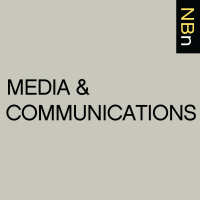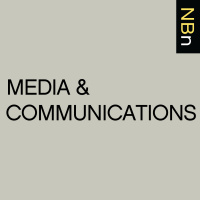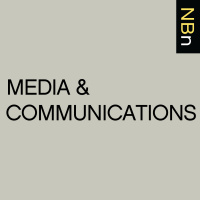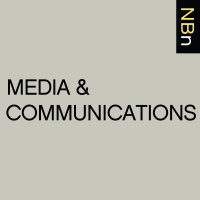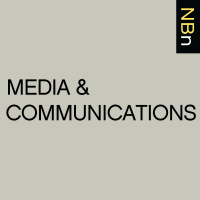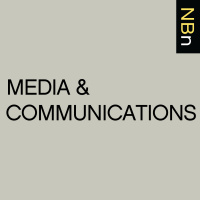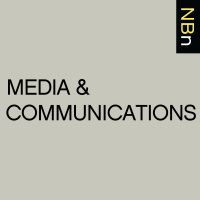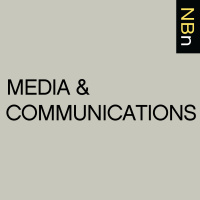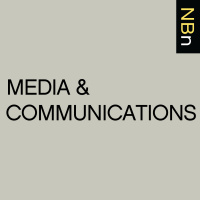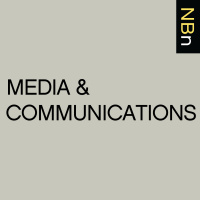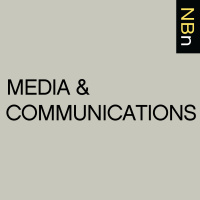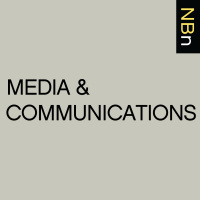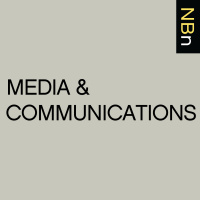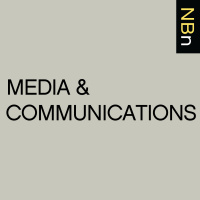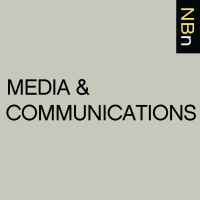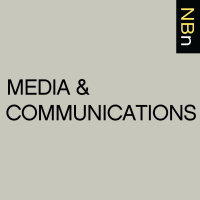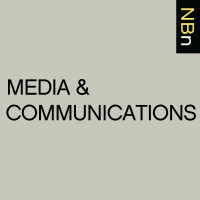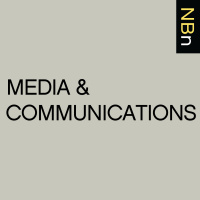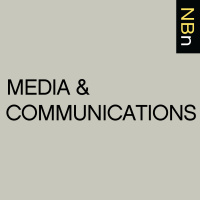Synopsis
Interviews with Scholars of Media and Communications about their New Books
Episodes
-
Hilary Neroni, “The Subject of Torture: Psychoanalysis and Biopolitics in Television and Film” (Columbia UP, 2015)
27/10/2015 Duration: 01h22sDid you notice that after 9/11, the depiction of torture on prime-time television went up nearly seven hundred percent? Hilary Neroni did. She had just finished a book on the changing relationship between female characters and violence in narrative cinema, and was attuned to function of violence in film and television. This was around the time the Abu Ghraib torture photos were leaked to the public. Over the next 10 years, torture porn appeared in the Saw and Hostel films, and it seemed that torture quickly became a routine element of thriller plots in movies and TV, such as the series 24. In The Subject of Torture: Psychoanalysis and Biopolitics in Television and Film (Columbia University Press, 2015), Neroni makes a compelling case that, prior to 9/11, the stage had already been set for the dehumanizing fantasy of torture to appear in mass culture – via biopolitics. With this book, Neroni takes on the task of defining and understanding torture through a psychoanalytic lens, using films and television as ca
-
Joseph R. Dennis, “Writing, Publishing, and Reading Local Gazetteers in Imperial China, 1100-1700” (Harvard University Asia Center, 2015)
18/10/2015 Duration: 01h01minIn late imperial China, how did local elites connect with and influence the central government? How was local information made and managed? How did the state incorporate frontier areas into the empire? How were books produced and read, and by whom? In his new book, Joseph R. Dennis helps answer these questions and more by studying the genre of local gazetteers. Focusing on the Ming period, Writing, Publishing, and Reading Local Gazetteers in Imperial China, 1100-1700 (Harvard University Asia Center, 2015) argues that gazetteers were “important points of intersection between the central government and local societies and one of the main vehicles for transmitting local information to central government officials.” In seven chapters that collectively move readers through the life cycle of a gazetteer, Dennis’s story informs the histories of the frontier, the state, kinship, the law, material culture, and the book industry. It will be a must-read for all scholars and students of late imperial Chinese history. Lea
-
Gillian Isaacs Russell, “Screen Relations: The Limits of Computer-Mediated Psychoanalysis and Psychotherapy” (Karnac, 2015)
13/10/2015 Duration: 55minAt New Books in Psychoanalysis, interviews are conducted using Skype. As the program is audio rather than video based, it never occurred to me to use the camera on my computer to see on the screen the person I was speaking to. Rather, I kept my ear turned acutely towards the authors, hanging on their every word while privately perusing my list of questions. I have joked with many interviewees that for all I know they are in their pajamas or naked. Truth be told, I have had no interest in seeing the authors during the interview. There was and is something about having the experience that the listener has on hearing, rather than seeing, the interview that may play a role in creating a certain kind of intensity and intimacy. So it was not lost on me that for this particular interview with Gillian Isaacs Russell about a book that looks straightforwardly at the impact of technology on the therapeutic relationship, that we would not be making eye contact. Though we could, I requested that we not do so. And anyway,
-
Kate Pahl, “Materializing Literacies in Communities: The Uses of Literacy Revisited” (Bloomsbury, 2014)
06/10/2015 Duration: 37minLiterary practices are often associated with specific social groups in particular social settings. Kate Pahl‘s Materializing Literacies in Communities: The Uses of Literacy Revisited (Bloomsbury, 2014) challenges these assumptions by showing the varieties of literary practice in Rotherham, England. The book engages with the locally particular to draw out a variety of general findings, relevant to methodological reflection and material culture debates. The book draws on a wealth of projects from the AHRC funded Connected Communities programme, including Fishing as Wisdom, The Imagine Project, and Language as Talisman. The book represents an important intervention into how we understand community, literacy and identity. Learn more about your ad choices. Visit megaphone.fm/adchoices
-
Lawrence M. Friedman, “The Big Trial: Law as Public Spectacle” (UP of Kansas, 2015)
05/10/2015 Duration: 41minIn the first legal history course I took as an undergraduate, I read Lawrence M. Friedman‘s A History of American Law and American Law in the 20th Century and have been fascinated with the subject ever since. His most recent work, The Big Trial: Law as Public Spectacle (University Press of Kansas, 2015) combines the scintillating narrative style that he employs as the author of several mystery novels with the keen insights about law and society that he has revealed time and again in his numerous cornerstone works of legal scholarship. Per the book jacket, “The trial of O. J. Simpson was a sensation, avidly followed by millions of people, but it was also, in a sense, nothing new. One hundred years earlier the Lizzie Borden trial had held the nation in thrall. The names (and the crimes) may change, but the appeal is enduring–and why this is, how it works, and what it means are what Lawrence Friedman investigates in The Big Trial. What is it about these cases that captures the public imagination? Are the “head
-
Joseph M. Reagle, “Reading the Comments: Likers, Haters and Manipulators at the Bottom of the Web” (MIT Press, 2015)
02/10/2015 Duration: 32minWhat do we know about the individuals who make comments on online news stories, blogs, videos and other media? What kind of people take the time to post all manner of information and context to material created by others? Joseph M. Reagle, assistant professor of communication studies at Northeastern University and a faculty associate at Harvard University’s Berkman Center for Internet and Society, examines these online pontificators and provocateurs in his new book Reading the Comments: Likers, Haters and Manipulators at the Bottom of the Web (MIT Press, 2015). Reagle categorizes the different kinds of comments, thereby organizing the different kinds of commenters into groups. In addition, Reagle considers both the function and value of comments in society. Just listen. Learn more about your ad choices. Visit megaphone.fm/adchoices
-
Sonja D. Williams “Word Warrior: Richard Durham, Radio, and Freedom” (U of Illinois Press, 2015)
23/09/2015 Duration: 01h12minSonja D. Williams‘ book Word Warrior: Richard Durham, Radio, and Freedom (University of Illinois Press, 2015) connects its subject to some of the most important events and social movements of his time, including what we now call the Civil Rights Movement and the Great Migration. Durham’s life path, like that of many other African Americans born in the early part of the 20th century, goes from the Jim Crow South, to Chicago, where his family builds a solid middle-class existence founded on educational attainment and hard work. Durham’s writing career included poetry, newspapers, radio, television, and a celebrated biography of Muhammad Ali. Durham also played a significant role in the election of the first black mayor of Chicago, his high school friend, Harold Washington. In this engaging interview, Sonja Williams sheds important light on an unassuming man who was most comfortable quietly but forcefully serving the causes he believed in from behind the scenes. Learn more about your ad choices. Visit megaphone.
-
Nicole Starosielski, “The Undersea Network” (Duke UP, 2015)
25/08/2015 Duration: 01h09minNicole Starosielski‘s new book brings an environmental and ecological consciousness to the study of digital media and digital systems, and it is a must-read. The Undersea Network (Duke University Press, 2015) looks carefully and imaginatively at the geography of undersea cable networks, paying special attention to the materiality of network infrastructure and its relationships with the histories of the Pacific. The book revises what we think we know about the infrastructure of global networks: they are not “wireless,” but wired; not rhizomatic and distributed, but semicentralized; not deterritorialized, but “territorially entrenched”; not resilient, but precarious and vulnerable; and not urban, but rural and aquatic. After providing a broad overview of three major eras of cable development – the copper cables of the 1850s-1950s, the coaxial cables of the 1950s-1980s, and the fiber-optic cables of the 1990s on, in each case focusing on the importance of security, insulation, and interconnection – Starosielski
-
Randy Nichols, “The Video Game Business” (British Film Institute, 2014)
16/08/2015 Duration: 50minVideo games have become an important cultural and economic force in our media environment. In his new book, The Video Game Business (British Film Institute, 2014), scholar Randy Nichols provides an overview of the increasingly diverse global market for video games. Nichols locates the origins of the video game industry back to the dawn of the computer age in the 1960s. He then explores the emergence of an industry around video games, noting the interdependence of hardware and software across a number of key “epochs”: from consoles to computer gaming to the explosion of mobile gaming. Throughout the book, Nichols explores key moments of transition in video games by providing institutional profiles of key industrial players in the industry. His critical analysis of power in the video game industry also explores the role of labor and audiences. Learn more about your ad choices. Visit megaphone.fm/adchoices
-
Christopher Vitale, “Networkologies: A Philosophy of Networks for a Hyperconnected Age” (Zero Books, 2014)
12/08/2015 Duration: 43minNetworks seem to be the dominant metaphor for contemporary society. In Networkologies: A Philosophy of Networks for a Hyperconnected Age (Zero Books, 2014), Christopher Vitale sets out a manifesto for understanding and using networks as the basis of a new philosophy. The book draws on continental philosophy, complex systems theory and a range of other elements to both introduce and contextualise, as well as present, the networkology manifesto. The book explores what networks are, how they emerge, how they change and how they are resilient (or not). The book intervenes in the contemporary interest in networks and will thus be of interest beyond just the critical theoretical disciplines. The text is also part of a much broader networkological project, including an original iteration of the manifesto and several papers. You can find out more about the project here. Learn more about your ad choices. Visit megaphone.fm/adchoices
-
Michael Ray FitzGerald, “Native Americans on Network TV: Stereotypes, Myths, and the ‘Good Indian'” (Rowman and Littlefield, 2013)
24/07/2015 Duration: 54minIn his new book Native Americans on Network TV: Stereotypes, Myths, and the ‘Good Indian’ (Rowman and Littlefield, 2013), Michael Ray FitzGerald reviews how television represented Native Americans, including in both positive and negative stereotypes. He talks about these portrayals from early television shows to more recent characterizations. Learn more about your ad choices. Visit megaphone.fm/adchoices
-
Jonathan Coopersmith, “Faxed: The Rise and Fall of the Fax Machine” (Johns Hopkins UP, 2015)
17/07/2015 Duration: 01h02minJonathan Coopersmith‘s new book takes readers through the century-and-a-half-long history of the fax machine and the technologies that shaped and were shaped by it, from Alexander Bain’s 1843 patent to the computer-based faxing of the end of the 20thcentury. Faxed: The Rise and Fall of the Fax Machine (Johns Hopkins University Press, 2015) chronicles the transformations of fax wrought by a range of industries and technologies in the context of world wars and global economic changes. In Coopersmith’s able hands, the history of the fax machine substantively informs a number of fields and disciplines that might not seem immediately related to it: these include visual studies (as newspapers and the military helped drive the development of fax markets and technology thanks to the need for rapid transfer of images in times of war and beyond) and East Asian studies (as fax machines can be traced through the history of modern homes and businesses in Japan). Coopersmith tells a story of fax as a story of repeated fail
-
James A. Secord, “Visions of Science: Books and Readers at the Dawn of the Victorian Age” (U of Chicago Press, 2014)
03/07/2015 Duration: 01h06minJames A. Secord‘s new book is both deeply enlightening and a pleasure to read. Emerging from the 2013 Sandars Lectures in Bibliography at the Cambridge University Library, Visions of Science: Books and Readers at the Dawn of the Victorian Age (University of Chicago Press, 2014) is a fascinating exploration of books and their readers during a moment of intense transformation in British society. Secord brings us into a period of the nineteenth century when transformations in publishing and an expanded reading public helped create a wide-ranging conversation about science and its possible futures. Out of this utopian moment several works emerged that reflected on the practices and prospects of science, and Secord guides us through seven of them in turn: the dialogues of Humphry Davy’s Consolations in Travel, the polemic of Charles Babbage’s Reflections on the Decline of Science in England, John Herschel’s moralizing Preliminary Discourse on the Study of Natural Philosophy, Mary Somerville’s mathematical On the C
-
Christian Fuchs, “Culture and Economy in the Age of Social Media” (Routledge, 2015)
28/06/2015 Duration: 56minSocial media is now a pervasive element of many people’s lives. in order to best understand this phenomenon we need a comprehensive theory of the political economy of social media. In Culture and Economy in the Age of Social Media (Routledge, 2015), Christian Fuchs, a professor of social media at the University of Westminster, brings together a range of media, social and economic theorists to explain social media. Using Raymond Williams to draw attention to the material conditions of control, production and use of social media, including case studies from the USA and China. Most notably the book insists on understanding the international division of labour behind the seemingly ephemeral aspects of online interactions. The book is essential reading for all of those active online, as well as those working in the political economy and critical theory traditions. It is available here. Learn more about your ad choices. Visit megaphone.fm/adchoices
-
Greg Siegel, “Forensic Media: Reconstructing Accidents in Accelerated Modernity” (Duke UP, 2014)
26/05/2015 Duration: 01h07minGreg Siegel‘s new book is a wonderfully engaging and meticulously researched account of a dual tendency in modern technological life: treating forensic knowledge of accident causation as a key to solving the accident, and treating this knowledge as the source for the future improvement of both technology and civilization. Forensic Media: Reconstructing Accidents in Accelerated Modernity (Duke University Press, 2014) argues that accidents, forensics, and media have been central to the emergence and evolution of this tendency. The chapters of the book trace the forms of media (graphic, photographic, electronic, and digital) that have been crucial forensic mediation since the nineteenth century, a period when the accident became “technologically modern” and the relationship between progress and catastrophe was transformed by the rise of “forensic rationality.” A series of fascinating case studies guides readers through the nature and implications of this transformation by introducing the rise of the forensic eng
-
Jon L. Mills, “Privacy in the New Media Age” (University Press of Florida, 2015)
25/05/2015 Duration: 32minThat privacy in the digital age is an important concept to be discussed is axiomatic. Cameras in mobile phones make it easy to record events and post them on the web. Consumers post an enormous amount of information on social media sites. And much of this information is made publicly available. A common question, then, is what can people truly expect to be be private when so much information is accessible. In his new book Privacy in the New Media Age (University Press of Florida 2015), Jon L. Mills (University of Florida, Levin College of Law), discusses another issue related to privacy in the digital environment: the conflict between privacy and freedom of expression. In so doing, Mills examines how the law, particularly in the United States, is always chasing advances in technology, and discusses how countries in the European Union have attempted to tackle this matter. Throughout the book he discusses famous court cases that illustrate the issues with privacy and new media in an attempt to come to a resolut
-
Timothy Jordan, “Information Politics: Liberation and Exploitation in the Digital Society” (Pluto Press, 2015)
05/05/2015 Duration: 52minStruggles over information in the digital era are central to Tim Jordan‘s new book, Information Politics: Liberation and Exploitation in the Digital Society (Pluto Press, 2015). The book aims to connect a critical theoretical reading of the idea of information with the architectures and practices surrounding information. The text begins by setting out how information is not separated from contemporary struggles over liberation and exploitation and points towards the principles of information politics that guide the reader through an engagement with contemporary theories, including the work of Haraway and Deleuze. These principles then inform theories of networks, recursion and the affordances of technologies that are used, in turn, to account for the platforms and battlegrounds of informational politics. The book does not offer up information as a new master discourse for political struggles, but rather shows, through examples including Facebook, the ICloud, the iPad, online gaming, and hacktivism, how inform
-
Naomi S. Baron, “Words Onscreen: The Fate of Reading in a Digital World” (Oxford UP, 2015)
01/05/2015 Duration: 39minScreens are ubiquitous. From the screen on a mobile, to that on a tablet, or laptop, or desktop computer, screens appear all around us, full of content both visual and text. But it is not necessarily the ubiquity of screens that has societal implications. The significance is in how screens fundamentally change how we ingest information. In her new book, Words Onscreen: The Fate of Reading in a Digital World (Oxford University Press, 2015), Naomi S. Baron, professor of linguistics and Executive Director of the Center for Teaching, Research & Learning at American University, asserts that despite the benefits of convenience and monetary savings, reading onscreen has many drawbacks. Using surveys of millennials in the United States, Japan and Germany, combined with anecdotes, and information from writers, Baron provides evidence of the impact of technology on reading, and thinking, in society. Just listen. Learn more about your ad choices. Visit megaphone.fm/adchoices
-
Jason Stanley, “How Propaganda Works” (Princeton UP, 2015)
01/05/2015 Duration: 01h05minPropaganda names a familiar collection of phenomena, and examples of propaganda are easy to identify, especially when one examines the output of totalitarian states. In those cases, language and imagery are employed for the purpose of shaping mass opinion, forming group allegiances, constructing worldviews, and securing compliance. It is undeniable that propaganda is employed by liberal democratic states. But it is also undeniable that the use of propaganda is especially problematic in liberal democracies, as it looks incompatible with the democratic ideals of equality and autonomous self-government. It’s surprising, then, that the topic of propaganda has gone relatively unexplored in contemporary political philosophy. In How Propaganda Works (Princeton University Press, 2015), Jason Stanley develops an original theory of propaganda according to which propaganda is the deployment of an ideal against itself. Along the way, Stanley distinguishes various kinds of propaganda and explores the connections between
-
Christine L. Borgman, “Big Data, Little Data, No Data: Scholarship in the Networked World” (MIT Press, 2015)
20/04/2015 Duration: 37minSocial media and digital technology now allow researchers to collect vast amounts of a variety data quickly. This so-called “big data,” and the practices that surround its collection, is all the rage in both the media and in research circles. What makes data “big,” is described by the v’s: volume, velocity, variety, and veracity. Volume refers to the massive scale of the data that can be collected, velocity, the speed of streaming analysis. Variety refers to the different forms of data available, while veracity considers the bias and noise in the data. Although many would like to focus on these details, two other v’s,validity and volatility, hold significance for big data. Validity considers the level of uncertainty in the data, asking whether it is accurate for the intended use. Volatility refers to how long the data can be stored, and remain valid. In her new book, Big Data, Little Data, No Data: Scholarship in the Networked World (MIT Press, 2015), Professor Christine L. Borgman, Presidential Chair in Inf

